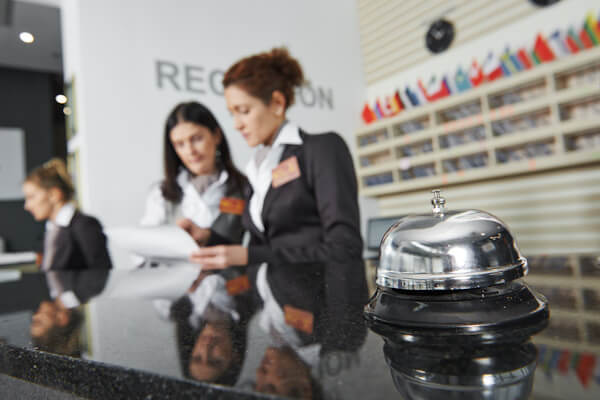How (and When) to Respond to Positive Hotel Reviews
When asked about review responses, we used to recommend that hoteliers respond to as many reviews as they can, within their own time and resource constraints. However, the results of a 2016 study by Cornell University indicate the need for a more strategic approach. The study found a positive correlation between response rates and bookings revenue. That is, hotels that respond to reviews up to a 40-45% response rate may see up to a 2.2x lift in bookings revenue, as compared to hotels that don’t respond to reviews at all.
However, the study noted that there are diminishing revenue returns for hotels that respond to more than 40-45% of their online reviews.
This begs the question – is it still worth it to reply to positive reviews?
According to our 2017 Global Hotel Reputation Benchmark Report, less than 10 percent of global hotel reviews are negative (one or two stars). So, even if you respond to all of your hotel’s negative reviews, that still leaves a 30% response rate opportunity for your hotel.
Respond to Positive Hotel Reviews Selectively
The answer then, is yes, it makes sense to respond to positive reviews. It is prudent to address mixed reviews first, but according to our benchmark data, you will likely have plenty of opportunity within that total 40-45% response rate to spend time on some of your positive reviews. Be selective, and pick those particularly glowing reviews, where your guest went into detail about his or her fabulous stay.
Here are some best practices for responding to positive feedback.
- Thank the reviewer for taking the time to share his experience at your hotel. People are busy and their efforts should be acknowledged. Here’s an example, “I was so glad to see your review online this morning. It made my day! Thank you so much for taking the time to share your experiences online. It means a lot to my staff and myself that you took the time…”
- Show your brand voice. A stale, template-like response sends the message that you’re just responding because someone told you to do so. A personal response that aligns with your hotel’s brand shows you care, and communicates the experience prospective guests could expect with your property. Something like, “I am so happy that you enjoyed your spa treatment with Jodie. I can’t tell you how many times I walk past the spa and wish I could just slip in for a quick hour with Jodie…” would be appropriate for a smaller hotel with a more casual and personal brand.
- Let the guest know that you will share his feedback with your team and recognize any employees that were mentioned by name. For example, “I was so happy to hear that Charlie, the concierge, provided you with excellent dinner recommendations. (He’s my ‘go-to’ guy for recommendations as well.) I will be sure to share your feedback with him, and the entire team. They love knowing that guests appreciate their service.”
- Encourage the guest to tell his friends and to come back. Encourage him to ‘like’ you on Facebook or follow you on Twitter to stay abreast of news and specials. You can say, “Please tell your friends about our hotel and come back to see us again. Follow us on Twitter for our weekly specials. We would love to see you again soon.”
While it does take time, it’s well worth the effort to reach out to these guests, as they are likely to be promoters of your property and your brand.
Learn about what’s trending, review response metrics, and a look forward at hospitality reputation in our 2018 Reputation Benchmark Report. Available free for download.
Related Posts

Insights that drive results
Subscribe now to get the latest content
This site is protected by reCAPTCHA and the Google Privacy Policy and Terms of Service apply. *Required fields.





